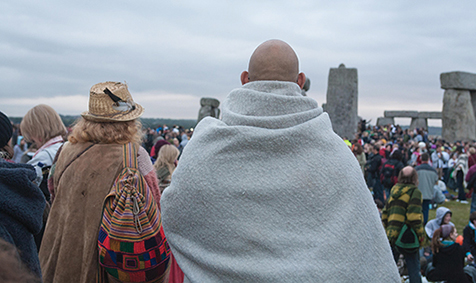4.2 Citizenship as a practice
Social psychologists have argued that citizenship needs to be understood as something that people do, as opposed to something that people have (Barnes, Auburn and Lea, 2004). Citizenship is studied in this field as a practice through which people make political claims in order to acquire rights and entitlements, but also as a practice of contesting and denying these rights.
The work of Barnes et al. (2004) on New Travellers in England is a good example of this social psychological approach to citizenship. New Travellers, also known as New Age travellers, are communities of people with a nomadic lifestyle originating in the free festival movement of the 1970s. New Travellers, particularly in the summer months, travelled in convoys across the country and camped in festival locations during the 1980s and early 1990s. New Travellers were very often met with local opposition, with groups of local residents protesting and putting pressure on local councils against camping. The media also portrayed them in a negative light, with stories about drug use, squalor and general lack of civility. Eventually, in the beginning of the 1990s, the British government passed legislation that made travelling life difficult (e.g. more stringent laws about trespassing) and, as a result, New Travellers are now a rare sight in Britain.
For Barnes et al. (2004), debates about the rights of New Travellers to camp in rural areas were essentially debates about the definition of ‘normal’ and ‘good’ citizenship. By depicting New Travellers as uncivil invaders who disrupt the normality of rural England, the media and anti-traveller groups were essentially arguing that New Travellers violated the norms of ‘good’ citizenship. To explore these claims, Barnes et al. studied letters of complaint to local council officials. Their analysis focused on the ways in which claiming citizen identities was used to argue against New Travellers. For instance, by positioning themselves as concerned local citizens, complainants were able to present themselves as representing the views of the entire community and as having the entitlement to speak up against New Travellers and call the local council to account. This study shows the ways in which rights and entitlements are not simply emanating from one’s citizenship status, but are built up through processes of claims-making.

